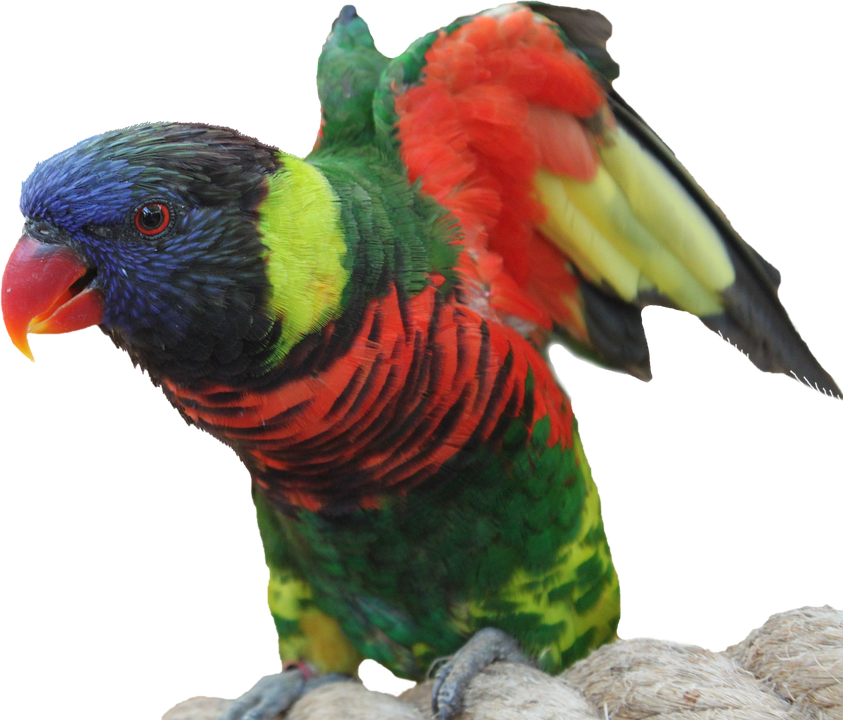Parrots have long been known for their ability to mimic sounds and vocalizations, making them fascinating and entertaining pets to have. But have you ever wondered how parrots respond to music? Can they appreciate melodies and rhythms like we do? In this article, we will delve into the intriguing world of parrot behavior and explore how these intelligent creatures react to music.
Research has shown that music can significantly influence parrot behavior and well-being. Parrots, just like humans, have a range of emotional responses to music. Here are some key ways in which parrots respond to music:
1. **Mimicking and Vocalizing:** Parrots are natural mimics, and when exposed to music, they often try to imitate the sounds and melodies they hear. Some parrots may even start singing or vocalizing along with the music, showcasing their impressive ability to pick up and replicate tunes.
2. **Dancing and Movement:** Parrots are known for their energetic and playful nature. When exposed to music, they may start moving their bodies, bobbing their heads, or even engaging in a full-blown dance routine. This rhythmic response to music highlights their enjoyment and appreciation of the auditory stimulation.
3. **Relaxation and Calming Effects:** Just like humans, parrots can find solace in music. Soft and soothing melodies have been observed to have a calming effect on parrots, helping them relax and reduce stress levels. Playing gentle tunes can be particularly beneficial for parrots in stressful environments or during periods of change.
4. **Preference for Certain Genres:** Parrots, much like humans, may have preferences when it comes to music genres. Some parrots seem to respond more positively to classical music, while others may enjoy lively and upbeat tunes. Experimenting with different genres can help you discover your parrot’s musical tastes.
Several factors can influence how parrots respond to music. It’s important to consider these factors when introducing music to your feathered friend:
1. **Volume and Tempo:** Parrots have sensitive hearing, and excessively loud music can cause distress or even damage their ears. It’s crucial to play music at a comfortable volume for your parrot. Additionally, the tempo of the music can impact their response. Upbeat tunes might encourage movement and playfulness, while slower melodies may promote relaxation.
2. **Familiarity and Exposure:** Parrots, being highly intelligent creatures, can develop preferences based on their exposure to certain tunes. They may respond more enthusiastically to music they have heard before or melodies that are similar to their natural vocalizations. Experiment with different songs and observe their reactions to find their favorites.
3. **Environmental Stimuli:** Parrots are highly perceptive of their surroundings. The context in which music is played can influence their reactions. For example, playing music during interactive playtime or training sessions can enhance their engagement and create positive associations with the music.
To answer some frequently asked questions:
**Q: Can all parrot species respond to music?**
A: Yes, all parrot species have the ability to respond to music. However, individual responses may vary based on their unique personality traits and preferences.
**Q: Can playing music for my parrot help with their mental stimulation?**
A: Absolutely! Music can provide mental stimulation for parrots, especially if it is accompanied by interactive play or training sessions. It can help prevent boredom and enrich their environment.
**Q: Are there any specific types of music that parrots enjoy more?**
A: Parrots have individual preferences when it comes to music genres. Some may enjoy classical pieces, while others might prefer pop, jazz, or even rock. Experiment with different genres to see which ones resonate with your parrot.
**Q: Is it safe to play music for my parrot all day long?**
A: While parrots generally enjoy music, it’s important to give them periods of quiet and rest as well. Continuous exposure to music can be overwhelming for them. Provide a balanced environment with both musical and quiet intervals.
**Q: Can playing music help in training my parrot?**
A: Yes, music can be a useful tool during training sessions. By associating specific tunes with positive reinforcement, you can create cues for desired behaviors, making training more effective and enjoyable for your parrot.
In conclusion, parrots have a fascinating relationship with music. They respond to melodies and rhythms through mimicry, movement, and emotional reactions. By understanding and catering to their musical preferences, we can enhance their well-being and strengthen our bond with these remarkable creatures. So, why not create a playlist for your parrot and embark on a melodious journey together?









